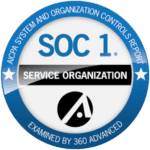In today’s fast-paced world, the efficiency of logistics operations can make or break a business. For companies that depend on the smooth movement of goods, monitoring and reporting logistics performance isn’t just an operational necessity—it’s a competitive advantage.
This blog post will guide you through effective strategies, tools, and best practices for tracking and improving your logistics performance.
Why Monitoring Logistics Performance Matters
The logistics landscape is increasingly complex. With rising customer expectations and global supply chains, businesses must stay agile.
Monitoring logistics performance helps identify areas of improvement, streamline operations, reduce costs, and enhance customer satisfaction. By keeping an eye on key metrics, companies can make data-driven decisions and stay ahead of the competition.
Key Metrics to Track
On-Time Delivery Rate
One of the most critical metrics in logistics is the on-time delivery rate. This measures the percentage of orders delivered on or before the scheduled date. High on-time delivery rates indicate efficient operations, while low rates signal potential issues in the supply chain.
Order Accuracy
Order accuracy measures how often orders are delivered correctly. Mistakes can lead to customer dissatisfaction and increased costs due to returns and re-shipments. Tracking order accuracy ensures that customers receive exactly what they ordered.
Transportation Costs
Transportation costs include expenses for shipping, fuel, and labor. Keeping these costs in check is vital for maintaining profitability. Monitoring these expenses helps identify cost-saving opportunities without compromising service quality.
Setting Up Effective Monitoring Systems
Choosing the Right Software
Selecting the right software is crucial for effective logistics performance monitoring. Look for solutions that offer real-time tracking, automated reporting, and integration with other business systems.
Implementing IoT Devices
The Internet of Things (IoT) can revolutionize logistics monitoring. IoT devices, such as GPS trackers and RFID tags, provide real-time data on the location and condition of goods. This technology enables more accurate tracking and faster response times.
Training Your Team
Even the best technology won’t be effective without proper training. Ensure that your team understands how to use the monitoring tools and interpret the data. Regular training sessions and updates can help keep everyone on the same page and improve overall efficiency.
Analyzing Data for Insights
Identifying Bottlenecks
Data analysis can reveal bottlenecks in your logistics operations. For example, if deliveries are consistently delayed at a particular distribution center, you can investigate and address the root cause. Identifying and eliminating bottlenecks can significantly improve efficiency.
Predicting Trends
Historical data can help predict future trends. By analyzing past performance, you can anticipate busy periods and adjust your logistics strategy accordingly. This proactive approach ensures that you are prepared for fluctuations in demand.
Benchmarking Against Industry Standards
Comparing your performance against industry benchmarks provides valuable insights. It helps you understand where you stand relative to competitors and identify areas for improvement. Use industry reports and studies to keep track of these standards.
Reporting Logistics Performance
Real-Time Dashboards
Real-time dashboards offer a visual representation of key metrics. They provide a quick overview of performance and allow for immediate action when issues arise. Customize your dashboard to display the most relevant data for your operations.
Monthly Reports
Monthly reports provide a detailed analysis of logistics performance over a specific period. These reports should include key metrics, trends, and actionable insights. Sharing these reports with stakeholders ensures everyone is informed and aligned.
Custom Reports
Custom reports cater to specific needs within the organization. Whether it’s a report for the finance team on transportation costs or a detailed breakdown of delivery times for the customer service team, custom reports ensure that all departments have the information they need.
Tools and Technologies
Transportation Management Systems (TMS)
A TMS is essential for managing and optimizing transportation operations. It offers features like route planning, carrier selection, and freight audit. Leading TMS solutions include our innovative TMS2.0 software.
Warehouse Management Systems (WMS)
A WMS helps manage warehouse operations, from receiving and put-away to picking and shipping. It ensures efficient use of space and labor. Examples include Manhattan Associates’ WMS and HighJump.
Advanced Analytics Platforms
Advanced analytics platforms provide deeper insights into logistics performance. They use machine learning and artificial intelligence to analyze data and generate predictive models. IBM’s Watson Analytics and Tableau are popular choices.
Best Practices for Continuous Improvement
Regular Audits
Conduct regular audits of your logistics processes. Audits help identify inefficiencies and areas for improvement. They also ensure compliance with regulations and standards. Use the findings to make necessary adjustments and improve performance.
Encouraging Feedback
Encourage feedback from employees, partners, and customers. This feedback can provide valuable insights into potential issues and areas for improvement. Create a culture of continuous improvement by acting on the feedback received.
Staying Updated with Industry Trends
The logistics industry is constantly evolving. Stay updated with the latest trends, technologies, and best practices. Attend industry conferences, subscribe to relevant publications, and network with other professionals to stay ahead.
The Role of Artificial Intelligence in Logistics
Predictive Maintenance
AI can predict when equipment is likely to fail, allowing for preventive maintenance. This reduces downtime and ensures smooth operations. Predictive maintenance is particularly useful for fleet management and warehouse equipment.
Demand Forecasting
AI-powered demand forecasting helps businesses anticipate customer needs more accurately. It analyzes historical data and market trends to predict future demand. This ensures that inventory levels are optimized, reducing stockouts and overstock situations.
Autonomous Vehicles
Autonomous vehicles are set to revolutionize logistics. From self-driving trucks to drones, these technologies can reduce transportation costs and improve delivery times. While still in the early stages, they hold significant potential for the future.
The Future of Logistics Monitoring
Blockchain Technology
Blockchain technology offers transparency and security in logistics operations. It can track and verify every transaction in the supply chain, reducing fraud and errors. While still emerging, it has the potential to transform the industry.
5G Connectivity
5G connectivity will enhance real-time monitoring capabilities. Faster data transmission and lower latency will enable more accurate tracking and quicker decision-making. This technology will be a game-changer for logistics monitoring.
Sustainability Initiatives
Sustainability is becoming a key focus in logistics. Monitoring tools can track carbon emissions and help businesses reduce their environmental impact. Implementing sustainable practices is not only good for the planet but also enhances brand reputation.
Conclusion
Effective logistics performance monitoring and reporting are crucial for business success. By tracking key metrics, using the right tools, and continually improving processes, companies can achieve greater efficiency and customer satisfaction.
The future of logistics is promising, with advancements in AI, blockchain, and connectivity set to further enhance operations.
Ready To Take Your Logistics To The Next Level?
Take the first step today and transform your logistics operations with a comprehensive Transportation Management System from Hatfield and Associates.
Contact Hatfield & Associates LLC today. Our team of experts is dedicated to helping you streamline your operations, minimize losses, and enhance customer satisfaction through cutting-edge logistics solutions.
With our comprehensive approach, we guide you every step of the way, from understanding your rights and responsibilities to implementing technology that drives efficiency.



